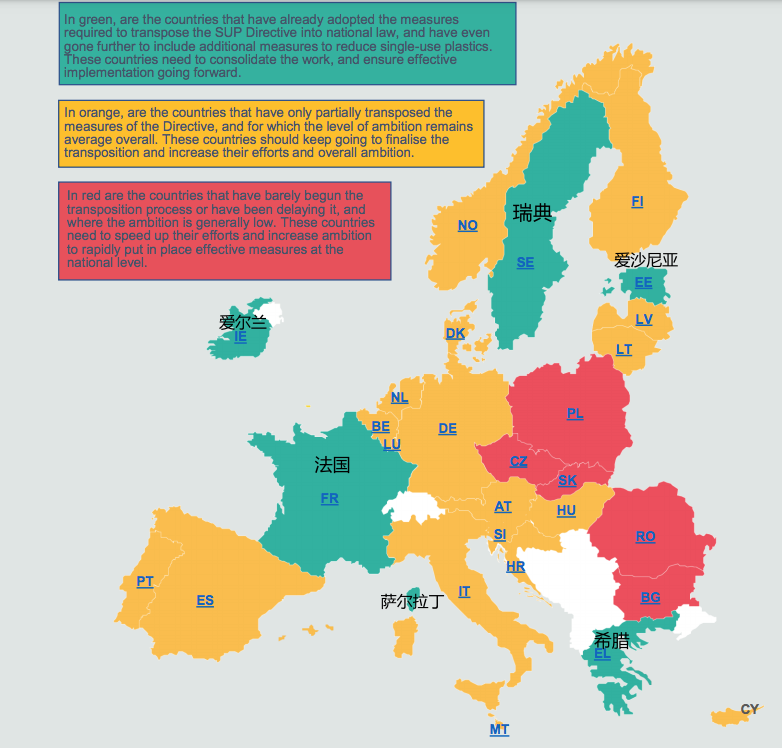Plastic has a serious impact on our environment, our climate, and our health, from the manufacture of plastic materials, the design of products, their use, and even the end of the life of These products.
Plastic pollution affects even the most remote areas of the world, with between 5 and 13 million tonnes of plastic entering the oceans every year. With global plastic production has increased more than 20-fold in the last 50 years and is estimated to double again by 2035 and quadruple again by 2050, the problem is ever-present and is becoming more urgent.
It is on the basis of the extraordinarily high use and pollution of single-use plastics that the EU has issued the SUP Directive, the Single-use plastic directive, which aims to reduce the environmental pollution caused by single-use plastics.
The directive was introduced on 3 July 2019 and EU countries have until 3 July 2021 to incorporate it into national law and take measures to implement it.
On July 3rd, 2021, single-use plastic straws, cutlery and plates, cotton swabs, and stirrers, among others, will be banned in the EU. In the transposition of the Single-Use Plastics Directive, some countries are leading the way and have gone beyond the requirements set in the Directive while others are lagging behind. The Rethink Plastic alliance, of which Surfrider Europe is a founding member, releases a new report on good and bad performing countries at transposing the EU Directive on Single-Use Plastics
Single-use plastics, a major threat to the Ocean and to our health
Globally, it is estimated that between 15 and 51 billion plastic particles, representing around 250,000 tonnes of plastic, are floating on the surface of the ocean. Without change, the ocean is expected to contain 1 tonne of plastic for every 3 tonnes of fish by 2025, and more plastic than fish by 2050.
Single-use plastics, i.e. plastics designed to be used only once and discarded after a very short period of use, account for the vast majority of plastic waste found on Europe's coasts and in the sea. The 10 most frequently found items alone account for 86% of all single-use plastics found on European beaches.
These single-use plastics are a threat to aquatic life. They will eventually break down over time into micro-particles under the effect of waves, currents and ultra-violet light. Once in the environment and the ocean, they can be ingested by species and enter the food chain, potentially impacting human health.
Overview of measures across Europe: too many States are still lacking ambition

This picture differentiates between top performers (highlighted in green) and Member States lagging behind (in orange and red) in implementing the mandatory EU measures to curb plastic pollution.
Estonia, France, Greece, and Sweden are examples of countries on a strong track for the implementation of the Directive, while Bulgaria and Poland are just some of many Member States which need to urgently scale up their efforts.
Conclusions and recommendations
The adoption of the SUP Directive has been welcomed by citizens across the country who want to see more action taken to quickly tackle plastic pollution and support sustainable products and packaging. European governments have committed to tackling plastic pollution, but many are still having to walk the talk and take effective measures to reduce the use of single-use plastics and prevent pollution.
Suggestions
Ensure full implementation and enforcement of the EU-wide ban and extend the ban to single-use plastic items in other countries
Prevent regrettable alternatives and take measures to ensure that banned items are replaced with reusable alternatives rather than disposable products made from other materials.
If you are interested in environmentally friendly products or want to use them in your business, you can email emma@sealongbio.cn, we are a manufacturer of biodegradable bags and we are dedicated to the research, production, and sale of bio-based polymer materials and the export of technology.
